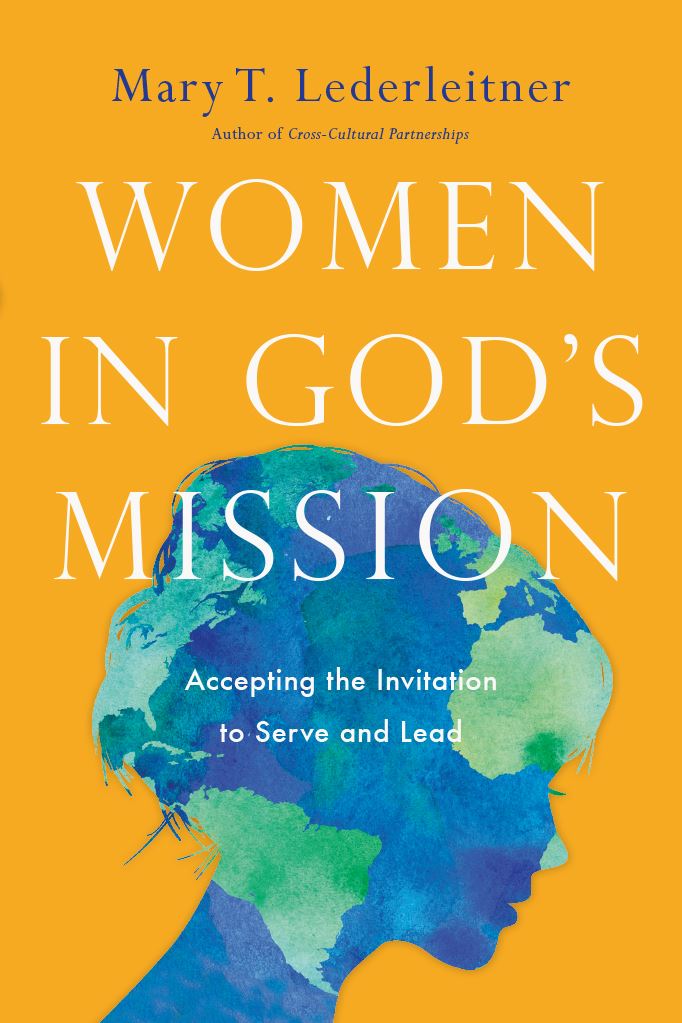
It’s exciting to serve in God’s mission . . . until it isn’t. We enter service and leadership in our congregations or in worthy ministries and organizations with high hopes. It can start off as such an exhilarating experience and we often find ourselves saying, “Wow I can’t believe I get to do this!” But, as time passes, the brokenness of life eventually seeps into the process. Maybe our expectations go unmet. Perhaps God does not answer our prayers, or ministry leaders or colleagues do not respond as we hoped. In the midst of following God in mission locally or abroad, over time our hearts break and sometimes they do not mend well. When that happens it is easy to become bitter and stop serving. When that occurs our ability to influence others towards God’s purposes diminishes significantly, and the evil one seems to win another victory.
Photo Credit: Thinkstock/digitalskillet

Learning from Gifted and Fruitful Leaders
To persevere in life and ministry, either as volunteers or full-time Christian workers, we need to become skilled at making meaning in redemptive ways when challenges arise. I was struck recently when I conducted research with deeply respected women who were serving and leading in God’s mission. They came from approximately thirty nations and from a wide array of different church and denominational backgrounds throughout the Global Body of Christ. They were from different generations, some were single and others were married, etc. Their stories and insights are captured in the new book Women in God’s Mission: Accepting the Invitation to Serve and Lead. One common feature given all the diversity was how many of them made meaning when challenges arose. This skill enabled them to persevere in the midst of diverse trials and make their best contributions in God’s mission.
Photo Credit: Thinkstock/monkeybusinessimages

How We Make Meaning Is Transformative
The meaning making process is one of the most powerful tools human beings have at their disposal. It is remarkable how anyone can access and employ this skill regardless of substantial hurdles or injustices such as socio-economic barriers, inaccessibility of crucial physical resources, limited education, etc. The challenge is because the psychological process happens so quickly, it can be functioning in either helpful or harmful ways within a person without his or her knowledge.
It is how people make meaning of an issue, and not the issue itself, that determines whether something is transformative or de-formative in a person's life. Let me provide a common scenario to illustrate how it works.
Photo Credit: Thinkstock/Alikaj2582

"...believing God is kind, and believing he is going to somehow bring good out of this heartbreaking situation."
Imagine there are two women and both have been active in their churches throughout their lives. They serve and lead regularly in ways that have blessed their congregations and communities. Both are married with teenage children. However, both just discovered they have an aggressive form of breast cancer. It has spread to their major organs and there is little chance that they will survive.
The circumstances for both women are identical. However, one makes meaning of her circumstances believing that God is unfair. She believes it is unjust that she has to endure this medical prognosis and not be around for her children and future grandchildren. However, the other woman makes meaning of her circumstances believing God is kind, and believing he is going to somehow bring good out of this heartbreaking situation.
Photo Credit: Thinkstock/AntonioGuillem

"...what they believed about God made all the difference. "
The first woman grows ever more angry, regularly pushing away the people in her life who love her the most. She undergoes extensive medical treatment, yet she dies eighteen months later. The end of her life is filled with turmoil and bitterness.
The second woman also undergoes extensive medical treatment, but because of how she made meaning she believes God is calling her to reach out to doctors, nurses and medical staff with his love. She wonders, "Maybe in these different encounters God might use me to minister and care for them?" Eighteen months later she also dies from the disease, but in the process she seems to become even more beautiful, and in the midst of battling the disease she brings the best out of everyone around her.
The challenge before both women was exactly the same, but how they made meaning of their circumstances in light of their faith and what they believed about God made all the difference.
Photo Credit: Thinkstock/ipopba

Making Meaning in Redemptive Ways
Making meaning in redemptive ways enables people to move forward rather than getting stuck or going backwards in their growth and development when they face challenges and difficulties. Here are two insights from women in my research that helped them move forward and not become trapped or bitter by what they were experiencing. Pseudonyms are used to protect their ministries and colleagues.
Sanuja is from a nation in South Asia where there has been a great deal of religious persecution. She is single and has served and led in a variety of roles, most recently as her mission's country director.
As she reflected upon difficulties in her journey she said, "If you are sure of God’s leading into the position then he will not leave you alone though at times you will feel lonely. Various types of circumstances will make you strong and mature. You cannot wait until you get mature – your work or role will lead to maturity.”
Photo Credit: Thinkstock/Marc Olivier Jodoin

"God is not...someone who puts things in the path in order that we might fall. "
Elspeth has encountered a lot of different situations during her years of service and leadership in God's mission. She has partnered with a number of large macro social change organizations such as UNESCO, and served in many nations helping to advocate for the rights and services marginalized people need to flourish. She was born and raised in Europe and she shared what helps her remain resilient as she encounters challenges in her mission journey. She said:
"This thing about persevering, if I can share something my mother shared with me when I was very young, and this is partially to do with things in general, but she shared it in response to spiritual things as well. She said, 'God doesn’t put things in your path to trip you up.
He puts things in your path in order to help you continue on the journey.'So God is not like some fickle schoolmaster or someone who puts things in the path in order that we might fall. But God is there in order that he might help us continue, and continue on day by day. These challenges are not in order that we might fail, but God desires that we might move ahead in some way. Whether it is through the challenge, or around the challenge, or just confronting it.
I think we need to be careful to remember, and maybe this is just part of my life lessons I’ve
learned at other times, but actually God loves me. And actually God is quite kind. And God isn’t,
well, there is a degree to which there is a testing about it, but not a testing in terms of an obstacle
course. God’s kindness and goodness are with me wherever.”
By making meaning this way Elspeth is able to navigate all kinds of significant challenges and remain resilient in the midst of them.
Photo Credit: Thinkstock/Capuski

God’s Redemptive Strategy
As I have struggled with unmet expectations while serving and leading in God’s mission, I’m often reminded of God’s strategy. He seems to form relationships with flawed individuals, and then invites them to serve alongside him. But these people in their weaknesses can make poor choices, and at times model behaviors that cause others to question God's goodness. Yet, if these people are willing to keep humbly coming to back to God, confessing their sins and failures, he lovingly mentors them and they begin to grow and develop in amazing ways. Others who have to experience their failures need to regularly practice forgiveness and redeeming situations, two of the most important character qualities that model the nature of our wonderful God. Practice makes perfect, or at least it fosters spiritual maturity. If we are willing to make meaning of what we are encountering through this lens, it makes persevering far easier.
Photo Credit: Thinkstock/Halfpoint

What Image Will You Bear?
What image will you choose to bear as you journey through this life? Will you choose to carry with you, year after year, all the unjust experiences you encounter? It's easy to live that way because often our surrounding cultures send messages that it is our right to bear grudges. However, I believe God desires for his sons and daughters to become better, rather than bitter, as they progress in their discipleship journeys. Seeking God when we have to make meaning of difficult encounters, and regularly practicing forgiveness and redeeming situations, make such a significant difference. Might we make meaning in redemptive ways so we become the people and leaders God desires for us to be as we proclaim his name and participate in his mission in the world!
This article is an excerpt from Women in God’s Mission: Accepting the Invitation to Serve and Lead. Used with permission.
 Mary T. Lederleitner is founder and executive director of Missional Intelligence. She has a PhD from Trinity Evangelical Divinity School and an MA in intercultural studies from Wheaton College, and teaches as an adjunct professor at both institutions. She is a veteran mission leader and researcher who has served for two decades with the Wycliffe Global Alliance in a variety of international leadership roles. She serves on the OM Global Board and as a board member for Catalyst Services. She is also the author of Cross-Cultural Partnerships.
Mary T. Lederleitner is founder and executive director of Missional Intelligence. She has a PhD from Trinity Evangelical Divinity School and an MA in intercultural studies from Wheaton College, and teaches as an adjunct professor at both institutions. She is a veteran mission leader and researcher who has served for two decades with the Wycliffe Global Alliance in a variety of international leadership roles. She serves on the OM Global Board and as a board member for Catalyst Services. She is also the author of Cross-Cultural Partnerships.
Photo Credit: Wenping Zheng
Originally published Monday, 10 December 2018.









